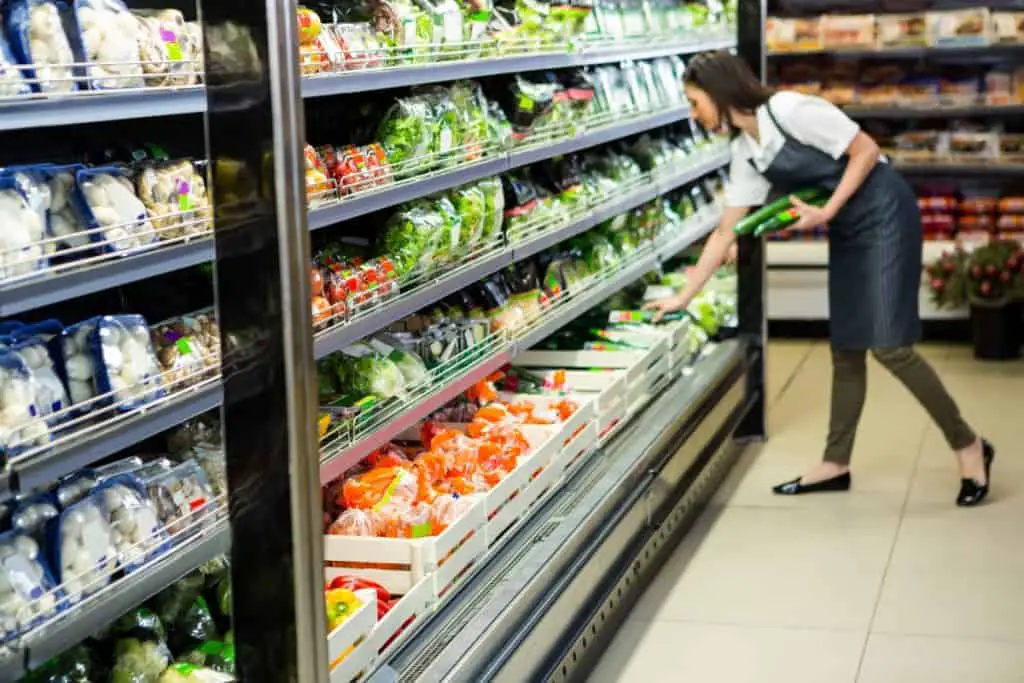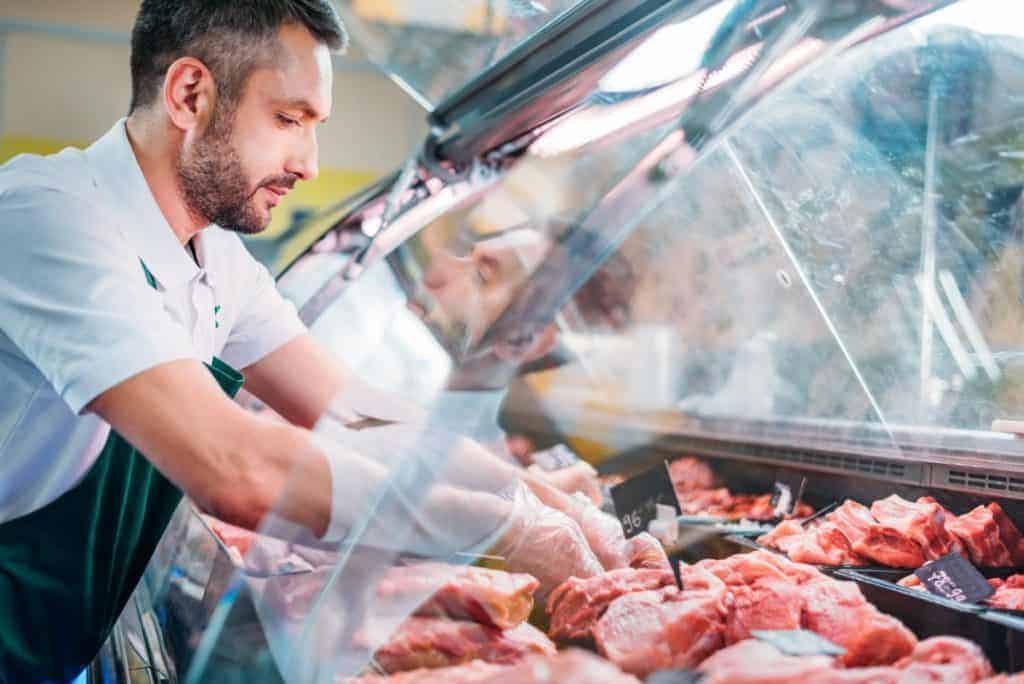This post contains affiliate links.

Food handlers permits are required for jobs involving food, but these permits are not always necessary.
A food handler’s permit is required for a business that processes, handles, or serves food. The requirements for each state and even counties are different. In some cases, only the manager needs a permit. Grocery store workers should ask their boss if it is a requirement in the state they live in.
Each state has different requirements regarding obtaining a food handler permit, so it is good to know the requirements set for each state.
Do Grocery Store Workers Need a Food Handler Permit?
A food handler’s permit can be called by many names. It is also referred to as a food handler’s license, certificate, or card. A food handler’s permit is used to simply show that the workers know how to prevent foodborne illness. This is often checked by a health inspector to make sure everything is up to date regarding health codes.
The answer to the question is quite complex. The requirements for each state regarding a food handler’s permit are different, so it is important to look up the requirements depending on the area you live in. Something you can be sure of is that it never is bad to ask your boss if it is required.
Jobs in a Grocery Store That Require a Food Handler Permit

Many jobs throughout the country might require a food handler’s permit. Some examples of jobs that would require a food handler’s permit include fast-food restaurants and sit down restaurants. The requirements for a food handling permit are different for each state, though, so they can be categorized as such.
Where the manager must have a food handler Permit
States that only require a kitchen supervisor, manager, or head chef to have a permit include Alabama, Delaware, Georgia, Minnesota, Nebraska, North Carolina, Pennsylvania, Rhode Island, South Carolina, South Dakota, Vermont, Virginia, Wisconsin, and Wyoming.
Some states, like Pennsylvania, Wyoming, and Wisconsin have specific requirements that the person who is certified must be present at all times. In cases like this, they might have multiple people who are certified, while only one is needed to make sure work can be done.
The manager then shares the necessary health and food safety to all of their workers. This allows workers to avoid taking the course and passing the exam. In these states, it is just required that workers know basic health and food care.
An Employee must have a Permit
Other states do not specify that a manager is the one who must be certified. The employee that has the food handlers permit simply must be present. These states are Alaska, Arizona, Connecticut, Hawaii, Iowa, Louisiana, Maine, Maryland, Massachusetts, Michigan, Mississippi, Montana, and New York.
When an employee just needs to be present that is certified, multiple people might be certified so there can be changes in workers for shifts.
People Who Touch Food must be Certified
Some states are more specific in their requirements regarding food handlers permits. These states require that all employees involved in preparing food, storing food, or serving food must be certified. The states that require everyone to have a permit are Arkansas, California, Colorado, Florida, Indiana, and Fayette County, and Lexington, Kentucky.
In California, the process to become certified must be done quickly. A worker must be certified 30 days after they are hired. This puts more pressure on taking the course and passing the exam quickly so one can keep their job.
If someone is working at a grocery store and is touching food, they will be required to have a food handler’s permit in the states previously listed. Because they are touching food that will be bought and consumed, they have to be instructed on how to keep customers safe.

Everyone Working Around Food Must have a Permit
In Illinois, New Mexico, Oregon, Texas, Washington, and West Virginia, all food-related employees are required to have a food handler’s permit. This includes any employee working around food at all. In these states, it would be required for a person who is working at a grocery store to have a food handler’s permit. Since grocery stores contain all types of food, workers are instructed to keep people safe and keep the company in business.
These employees, even if they are working in a grocery store, will be required to have a food handler’s permit. They are working around food constantly, so they will be asked by the state to have a food handler’s permit.
Ohio requires that all employees who work at a food establishment obtain the food handlers permit. This includes anyone who works fast food or a sit-down restaurant.
The following states have nothing in food safety law regarding the state, however, the counties contained therein may have rules: Idaho, Kansas, Missouri, Nevada, New Hampshire, North Dakota, Oklahoma, and Tennessee.
For more information regarding becoming certified based on which state you are in, follow the link here .
.
How to Obtain a Food Handler Permit
To obtain a food handler’s permit, one must take an online course and pass the final exam with a 75% or higher. It is essential to get as high of a score as possible because the test can be taken up to 3 times. If a worker were to fail the test too many times, they would be prevented from working.
The class itself is not super expensive. You can pay between $15 and $20 to take the course and the exam.
One can proceed in the process through the website linked here .
.
Do You Need to Renew a Food Handler Permit?
There is not a specific amount of time that has been allotted by the country regarding how long a food permit lasts, however, a state can decide how soon the certificate must be renewed. For example, in Florida, it must be renewed every three years.
On average, you will need to renew a food handler’s permit every four years. A state can decide whether they would like to extend that time or not. The county might have more control over the requirements, though.

